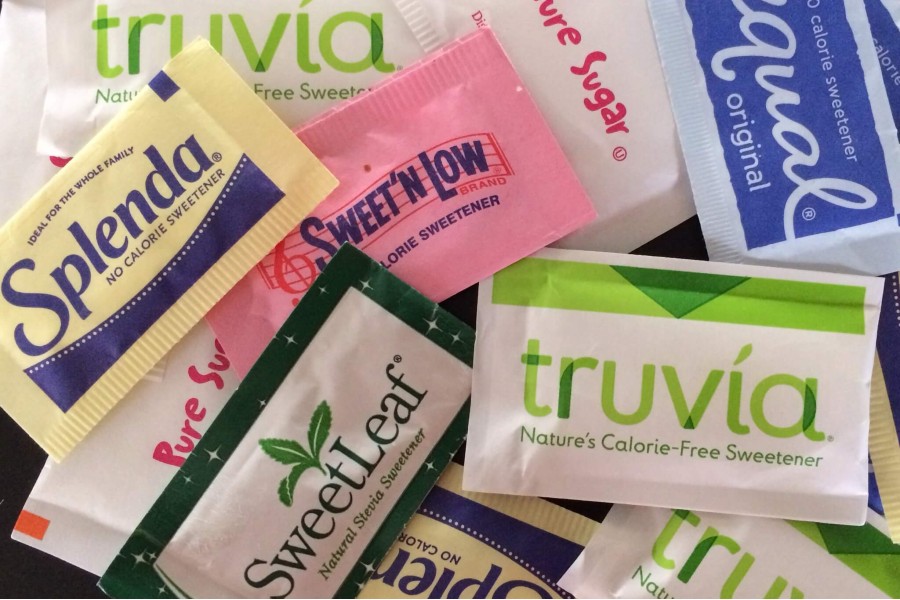
Drink Diet Coke or Snapple? Chew Extra chewing gum? Worry about cancer?
If you do, Reuters reports that new research from the International Agency for Research on Cancer (IARC) suggests you’re dancing with danger.
IARC, the World Health Organization’s (WHO) cancer research arm, claims that Aspartame, the sweetener used in those products and the basis of Nutrasweet, Equal, and Sugar Twin, is set to be classified as a possible carcinogen — a substance capable of causing cancer in living tissue — this July.
IARC, the World Health Organization’s (WHO) cancer research arm, claims that Aspartame, the sweetener used in those products and the basis of Nutrasweet, Equal, and Sugar Twin, is set to be classified as a possible carcinogen — a substance capable of causing cancer in living tissue — this July.
Earlier this year, the WHO also advised that non-sugar sweeteners should not be used for weight loss.
Earlier this year, the WHO also advised that non-sugar sweeteners should not be used for weight loss.
On the basis of all the published evidence, the IARC ruling determines whether something is a potential hazard, but it stops short of deciding just how much of a product someone can safely consume.
The IARC is being cautious in that regard for a reason. Some previous IARC rulings concerning different substances raised questions among consumers about their use, contributed to lawsuits, and compelled food and drink manufacturers to modify recipes and switch to alternative sweeteners.
Who’s possibly the most at risk?
In a recent study published by the National Library of Medicine (NLM), consumers of low-calorie sweeteners (LCS) tend to be older, female, non-Hispanic White, less likely to smoke, have higher-quality diets, have higher BMI, a higher prevalence of obesity and diabetes, and with higher education and incomes as opposed to nonconsumers.
When it comes to the effects, it’s a proverbial hornet’s nest. CitizensForHealth writes in its review of “Baddatives” that in some reported cases, side effects from using aspartame have included everything from headaches, dizziness, confusion and memory loss to convulsions and blackouts.
Fact or fiction?
There are studies – such as the NLM one and one from the FDA – that suggest there is no conclusive evidence that aspartame, saccharin, or any LCS product has any impact on overall cancer mortality.
And, as you can imagine, interest groups that support LCS products aren’t exactly thrilled with the IARC’s opinion, either.
“IARC is not a food safety body and their review of aspartame is not scientifically comprehensive and is based heavily on widely discredited research,” Frances Hunt-Wood, the secretary general of the International Sweeteners Association (ISA), told Reuters, adding that the organization had “serious concerns with the IARC review, which may mislead consumers”.
How much is too much?
JECFA, the WHO committee on additives, is also updating its review of aspartame use this year. For more than 40 years, its position was that aspartame is safe to consume within “accepted” daily limits, citing this example: Someone who weighs 132 pounds would have to drink between 12 and 36 cans of diet soda – depending on the amount of aspartame in the beverage – every day to be at risk.
What are those accepted limits? ConsumerAffairs didn’t find specifics from JECFA, but the FDA has published guidelines to help consumers determine how many packets of sweetener they can consume and still be at the safe level for each sweetener, based on its sweetness intensity.
- Governor Hochul Bolsters Subway Security With National Guard Deployment
- Book Launch; ‘Beyond Architecture: The NEW New York’ By Barbaralee Diamonstein-Spielvogel
- Sponsored Love: Daddy’s Greek Potato Pie, A Book About Healthy Eating By CC Minton
- The Wider Applications Of AI Image Generators In Everyday Lives
- HubSpot Marketing Hub Implementation | Complete Guide
Become a Harlem Insider!
By submitting this form, you are consenting to receive marketing emails from: . You can revoke your consent to receive emails at any time by using the SafeUnsubscribe® link, found at the bottom of every email. Emails are serviced by Constant Contact









